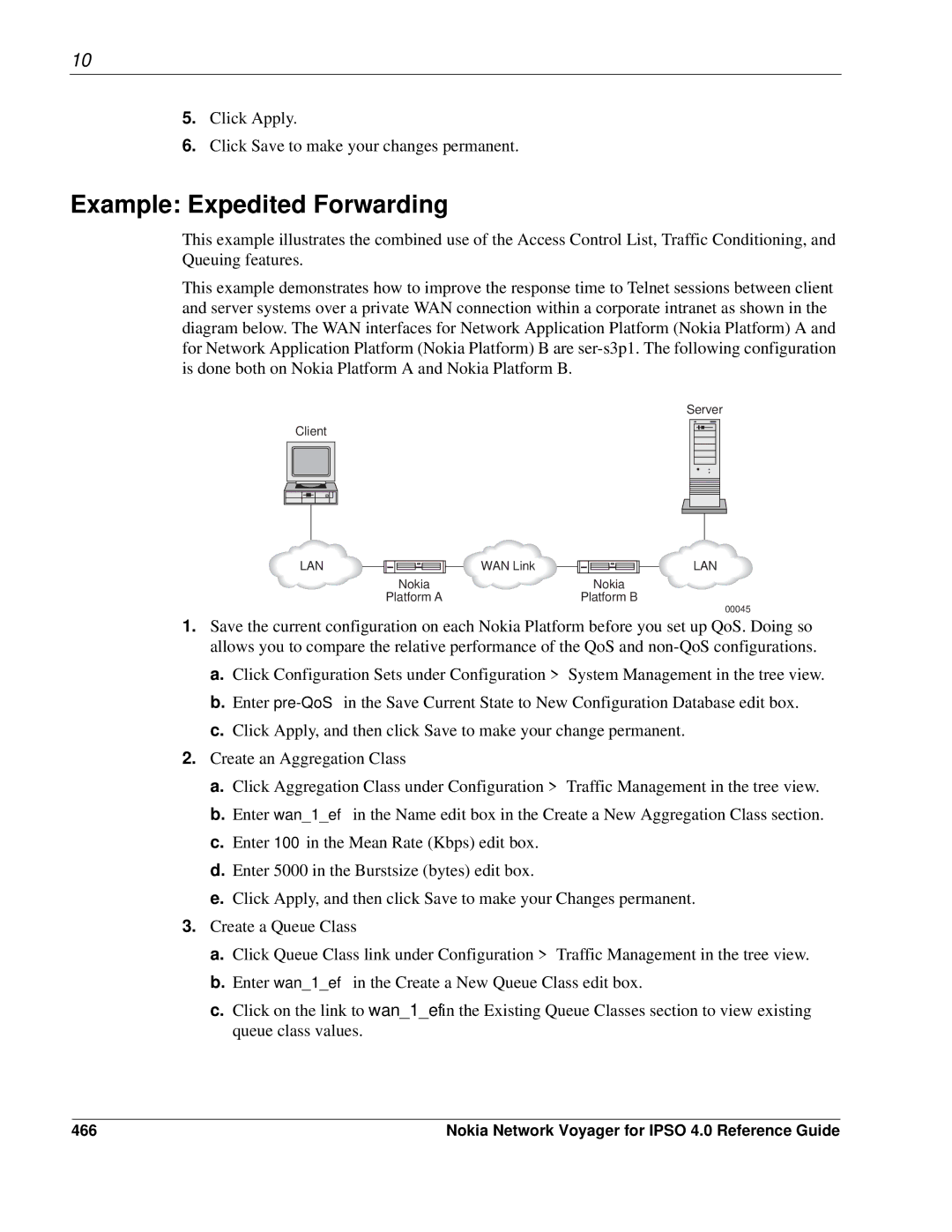
10
5.Click Apply.
6.Click Save to make your changes permanent.
Example: Expedited Forwarding
This example illustrates the combined use of the Access Control List, Traffic Conditioning, and Queuing features.
This example demonstrates how to improve the response time to Telnet sessions between client and server systems over a private WAN connection within a corporate intranet as shown in the diagram below. The WAN interfaces for Network Application Platform (Nokia Platform) A and for Network Application Platform (Nokia Platform) B are
Server
Client
LAN
| WAN Link |
Nokia | Nokia |
Platform A | Platform B |
LAN
00045
1.Save the current configuration on each Nokia Platform before you set up QoS. Doing so allows you to compare the relative performance of the QoS and
a.Click Configuration Sets under Configuration > System Management in the tree view.
b.Enter
c.Click Apply, and then click Save to make your change permanent.
2.Create an Aggregation Class
a.Click Aggregation Class under Configuration > Traffic Management in the tree view.
b.Enter wan_1_ef in the Name edit box in the Create a New Aggregation Class section.
c.Enter 100 in the Mean Rate (Kbps) edit box.
d.Enter 5000 in the Burstsize (bytes) edit box.
e.Click Apply, and then click Save to make your Changes permanent.
3.Create a Queue Class
a.Click Queue Class link under Configuration > Traffic Management in the tree view.
b.Enter wan_1_ef in the Create a New Queue Class edit box.
c.Click on the link to wan_1_ef in the Existing Queue Classes section to view existing queue class values.
466 | Nokia Network Voyager for IPSO 4.0 Reference Guide |
